Denemek ALTIN - Özgür
PEOPLE POWER OFFENSIVE
Australian Geographic Magazine
|January-February 2024
Each year, experts and citizen scientists come together in the Walpole Wilderness BioBlitz to survey the natural wonders of the South West region of Western Australia.

A CROWD IS GATHERING along a wide dirt road in the wilderness. Cars, trucks and mud-splashed four-wheel-drives park in a long line, one behind another. Families with young children emerge, kitted out in bright jumpers and gumboots, then backpackers and grey-haired couples wearing matching hiking boots appear. The lively throng – reaching a headcount of 170 – has signed up to take part in the Walpole Wilderness BioBlitz, a two-day event held annually in the South West region of Western Australia. People have driven to the tiny south coast hamlet of Walpole from near and far – a few have even flown interstate to learn about the Walpole Wilderness.
“We’re going to split up into groups of about 10 and survey a whole range of different ecosystems, from the forests down to granite outcrops and peatlands,” says BioBlitz coordinator Dr David Edmonds, a local vet and cattle farmer, as he addresses the crowd. “We’re looking for a whole range of different things – we’ve got expert botanists to talk plants, we’ve got invertebrate specialists for the insects, and frog experts. We’ve got all sorts of people here.”

Later, David tells me he loves watching the animated conversations between experts and citizen scientists: “These are people who just want to participate and get out there and learn more about the Walpole Wilderness.”
By the end of the BioBlitz, these citizen scientists will have uploaded 3000 images onto iNaturalist, an app that helps image takers and researchers identify a flower, bird, frog, or bit of moss.
Bu hikaye Australian Geographic Magazine dergisinin January-February 2024 baskısından alınmıştır.
Binlerce özenle seçilmiş premium hikayeye ve 9.000'den fazla dergi ve gazeteye erişmek için Magzter GOLD'a abone olun.
Zaten abone misiniz? Oturum aç
Australian Geographic Magazine'den DAHA FAZLA HİKAYE

Australian Geographic Magazine
SULAWESI SENSATIONS
There are worlds within worlds and marvels untold waiting to be experienced on Indonesia's remote islands.
9 mins
September-October 2024
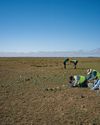
Australian Geographic Magazine
SEARCHING FOR AUSSIE DINOSAURS
Our understanding of where to find ancient life in Australia has been turned on its head by a new appreciation of the country's geology. Now the world is looking to our vast outback as the latest hotspot to locate fossils.
18 mins
September-October 2024
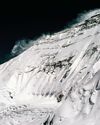
Australian Geographic Magazine
THE HARDEST NIGHT
The first Australian ascent of Mt Everest in 1984 is one of the great feats of mountaineering. Climbed by a small team semi-alpine style, with no bottled oxygen, via the Great (Norton) Couloir, it remains unrepeated 40 years later.
14 mins
September-October 2024
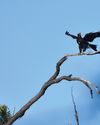
Australian Geographic Magazine
WEDGE-TAILED WONDER
The chance discovery of an eagle nest leads to an extended vigil observing normally hidden behaviours of one of nature's supreme winged marvels.
3 mins
September-October 2024
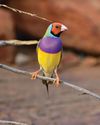
Australian Geographic Magazine
BURDENED BY BEAUTY
Northern Australia's Gouldian finch survives in huge numbers in cages around the world, but its wild population continues to struggle.
4 mins
September-October 2024
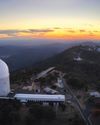
Australian Geographic Magazine
A TELESCOPE FOR A GOLDEN AGE
After a stellar 50 years as one of the country's major scientific assets, the AAT continues to play a major role in keeping Australian astronomy on the world stage.
7 mins
September-October 2024
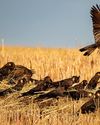
Australian Geographic Magazine
COCKY WHISPERING AT COOMALLO CREEK
This patch of remnant bush on the edge of the West Australian wheatbelt is a place loved by one of Australia's rarest bird species and the man who has studied the site for more than 50 years.
6 mins
September-October 2024

Australian Geographic Magazine
A PIONEERING PAIR
Louisa Atkinson and her mother, Charlotte, were among Australia's earliest authors, and pioneers in women's rights.
9 mins
September-October 2024

Australian Geographic Magazine
THE LONGEST WALK
Lucy Barnard is walking from Argentina to Alaska -the length of the Americas - on an extraordinary journey of endurance and adventure.
6 mins
September-October 2024
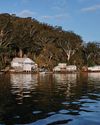
Australian Geographic Magazine
SECLUDED, BUT NOT ALONE
In an era of heightened social isolation, where many of us lead lonely lives, Dangar Island offers the chance to be part of a supportive, connected community.
7 mins
September-October 2024
Translate
Change font size
